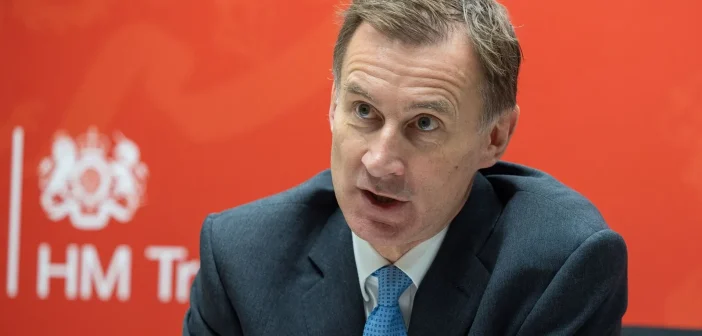Stronger tax receipts from an economy that has so far avoided recession meant the UK’s budget deficit stood at £4.3bn last month – the fifth highest for a July since modern records began in 1993 but £1.7bn below the estimate from the Office for Budget Responsibility.
In the first four months of the 2023-24 financial year, the government borrowed £56.6bn to cover the difference between its tax revenues and its spending. The running total was £13.7bn more than in the equivalent four-month period of 2022-23 but £11.3bn lower than the £68bn forecast by the OBR.
“As inflation slows, it’s vital that we don’t alter our course and continue to act responsibly with the public finances,”Hunt said. “Only by sticking to our plan will we halve inflation, grow the economy and reduce debt.”
The Treasury thinks changes to growth, inflation and interest rates put pressure on the public finances and insists it will not be deterred from its focus to get debt – which now stands at just under £2.6tn – falling over the medium term.
Analysts said the outlook for the public finances remained poor and that rising debt interest payments would make it hard for government to meet its fiscal rules – which include reducing debt as a share of national output (gross domestic product) in five years’ time. At the spring budget the OBR said the debt rule would be met by only a slender margin of £6.5bn.
Ruth Gregory, a UK economist at Capital Economics, said: “July’s public finances figures continued the recent run of better-than-expected news on the fiscal position. But with interest rates still rising and a mild recession on its way, we continue to think the chancellor will struggle to unveil a large package of permanent tax cuts in the autumn statement while still adhering to his fiscal rules.”
Gregory said she expected growth to be weaker in the 2023-24 and 2024-25 tax years than the OBR was anticipating, with knock-on effects on tax revenues. Higher interest rates would add around £18bn to the OBR’s forecast for debt interest spending by 2027/28, she added.
Martin Beck, the chief economic adviser to the EY Item Club, said: “The period since the OBR’s last forecast has seen market expectations for interest rates rise markedly out to the end of the OBR’s forecast horizon.
“Combined with the little leeway in meeting the fiscal rules forecast in the spring budget, this raises the odds that the official forecaster will deem the government in breach of its fiscal rules based on current policy in the next fiscal event later this year. The chancellor would likely respond by pencilling in further post-election spending cuts on top of fiscal plans that already look challenging.”

